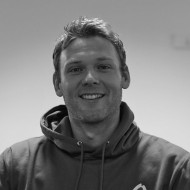The history of education has been one of struggle and domination. In the not-too-distant past, the provision of formal education to anyone outside of the elite or ruling classes was often perceived as a threat to those in power.
Consequently, this has seen the exclusion of many groups from formal education, which has included, among others, the working classes, ethnic minorities, members of discriminated religions and women.
For instance in England, women’s exclusion from higher education and being unable to receive degree until 1920 is recognised by Virginia Woolf, who wrote: “Lock up your libraries if you like; but there is no gate, no lock, no bolt that you can set upon the freedom of my mind.”
Although for many this may seem like a distant memory from a bygone age, it was only as recently as 2012 that women were restricted from studying a number of different academic subjects in Iranian universities.
Whilst many of the responses to the struggle over the access to education have been outside of mainstream institutions, universities themselves have acknowledged the struggle for the right to education and have attempted to provide classes to the general public.
Perhaps one of the best examples of these classes are the Christmas Lectures hosted by the Royal Institute in London every year since 1825 (apart from during the Second World War). These lectures are delivered by leading academics on specific subjects, which have included Astronomy, Time Machines and Robots. The Christmas Lectures were an attempt by Michael Faraday in 1825 to provide free education to the general public; forty-five years before the Elementary Education Act 1870 introduced compulsory education for children aged 5 to 10 years old.
In a similar spirit the Social Science Centre in Lincoln was formed in 2011 to provide free, co-operative, higher education for those that cannot afford or who do not wish to pay £9,000 per year tuition fees. As part of the Social Science Centre’s provision, it is hosting a series of monthly, free public seminars.
Each seminar deals with a different theme and is facilitated by a different academic or expert from a particular field each month. The seminars are facilitated in a way that encourages discussion among the participants about each topic in an informal setting.
Our most recent public seminar was facilitated by Alistair Bonnett, Professor of Geography at Newcastle University. Alistair discussed the English Radical, Thomas Spence. Spence, a leading revolutionary during the 18th and 19th centuries fought for the common ownership of land, universal suffrage, welfare and rights for children, which were published in a pamphlet called Property in Land Everyone’s Right or The Real Rights of Man. Spence was also an educationalist and an autodidact and was well aware to the emancipatory potential of education.
Spence lived in a time when literacy levels amongst the general population were poor. In response, Spence created a phonetic system, which he hoped would allow the masses to learn to read and pronounce English words. Spence’s aim was to improve the literacy levels and education of the working classes so that they could challenge the oppression they faced from the landed aristocracy and increasingly powerful industrial classes.
The Social Science Centre’s next public seminar will be held at the Renew Involvement Centre on Mint Lane on September 17 from 6.30pm. The seminar is entitled Reading the Pussy Riot Act, and will examine politics and freedom of assembly and speech in contemporary Russia, facilitated by Edwin Bacon, who teaches Comparative Politics at the University of London and has a specialism in the politics of Russia and religion.





